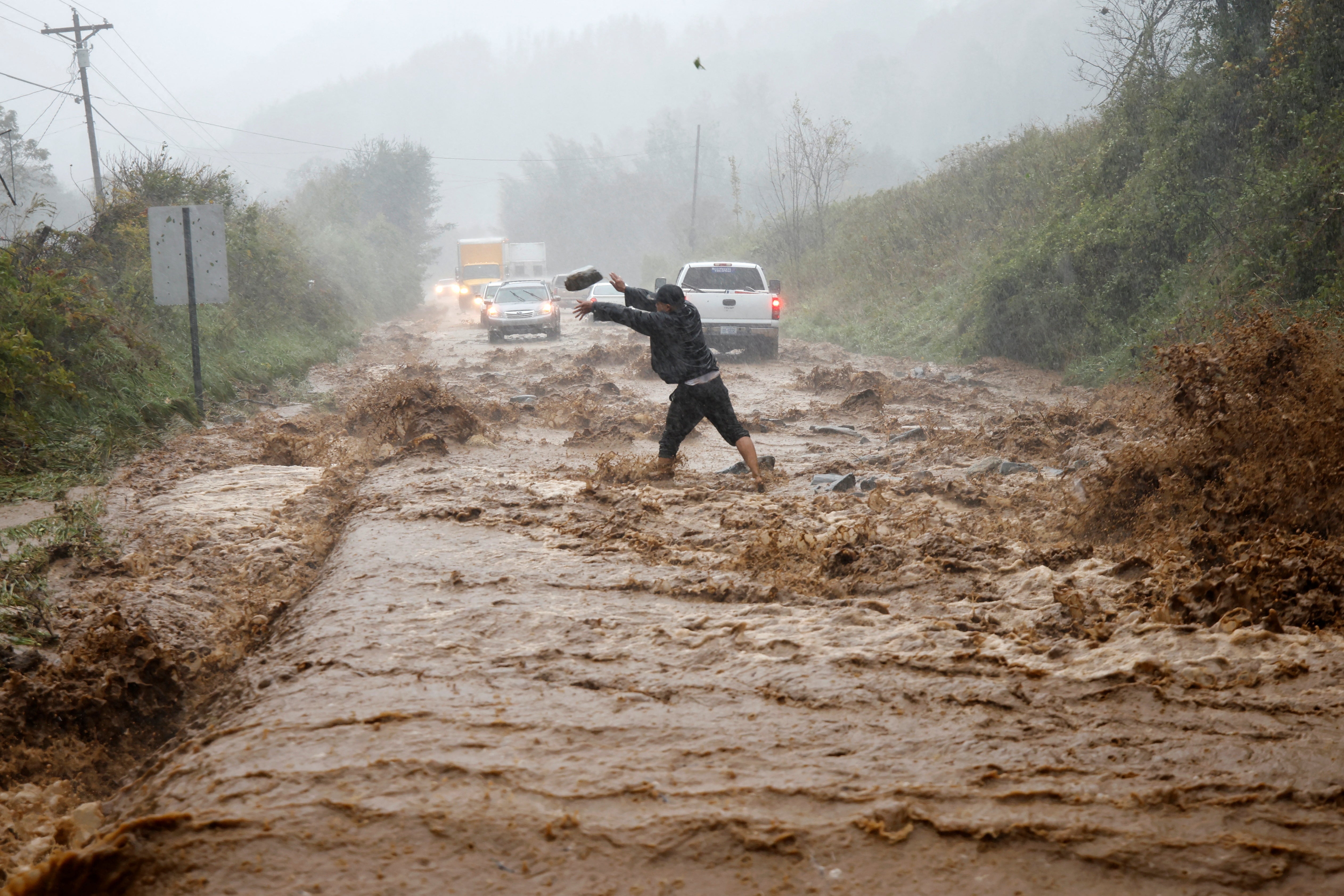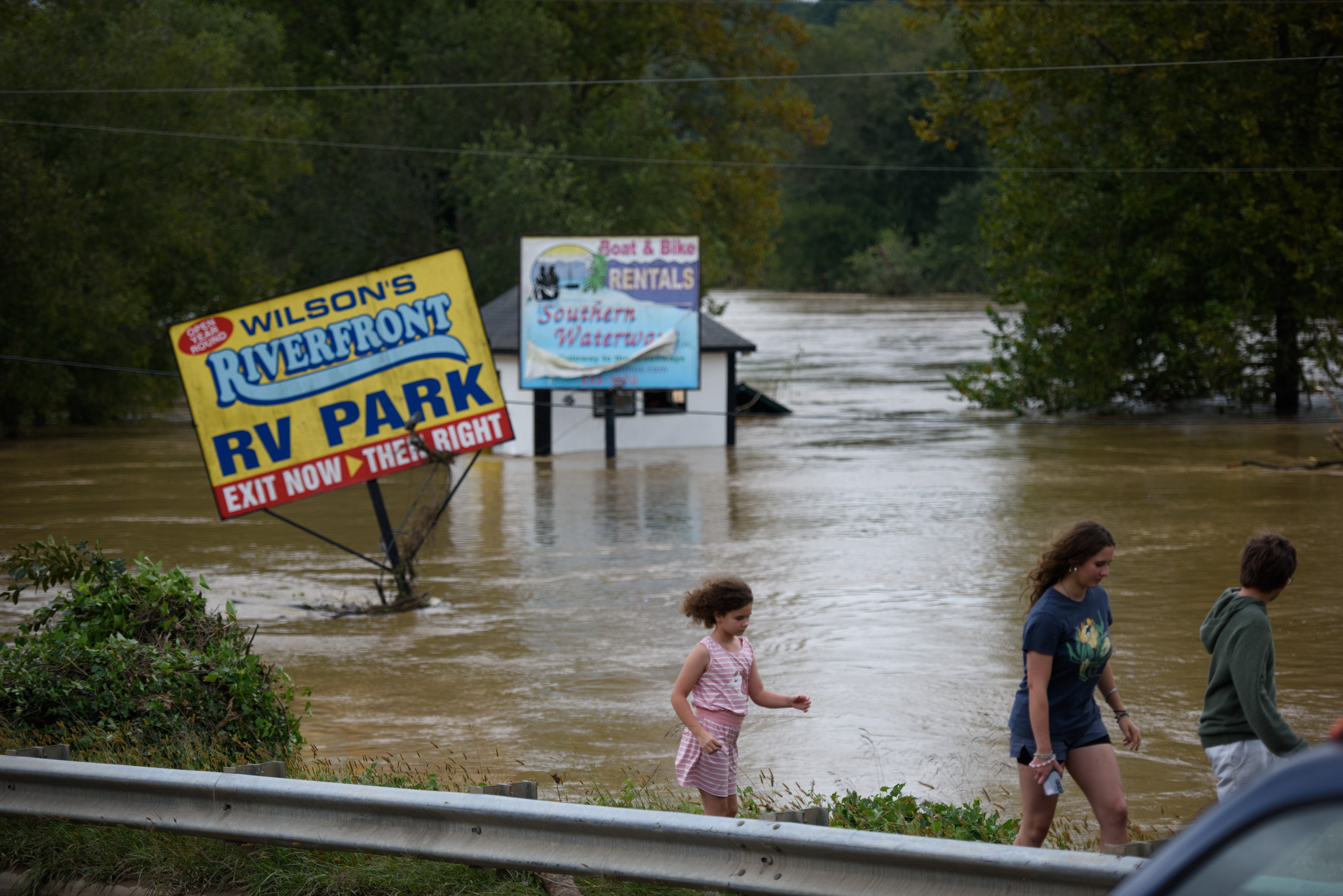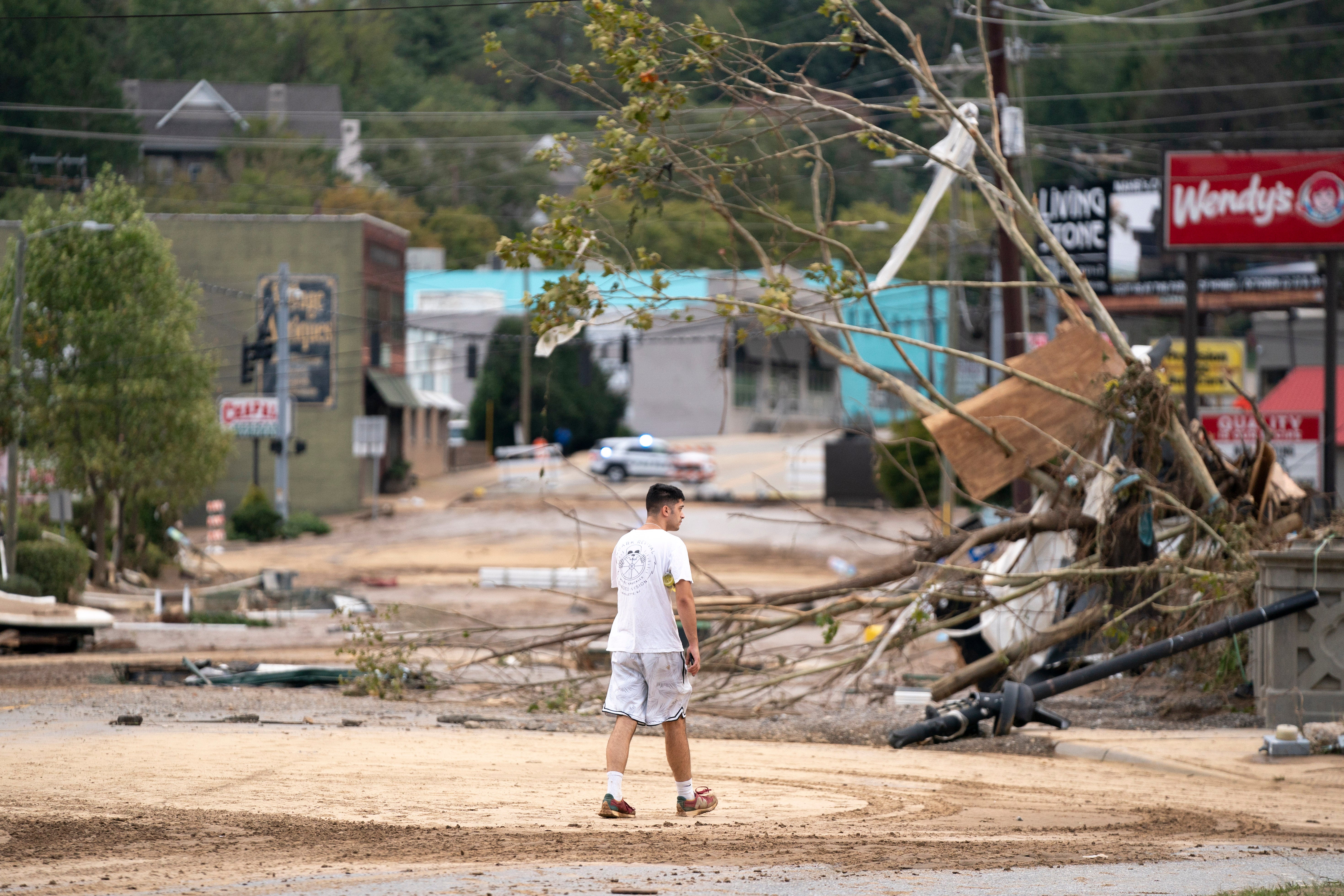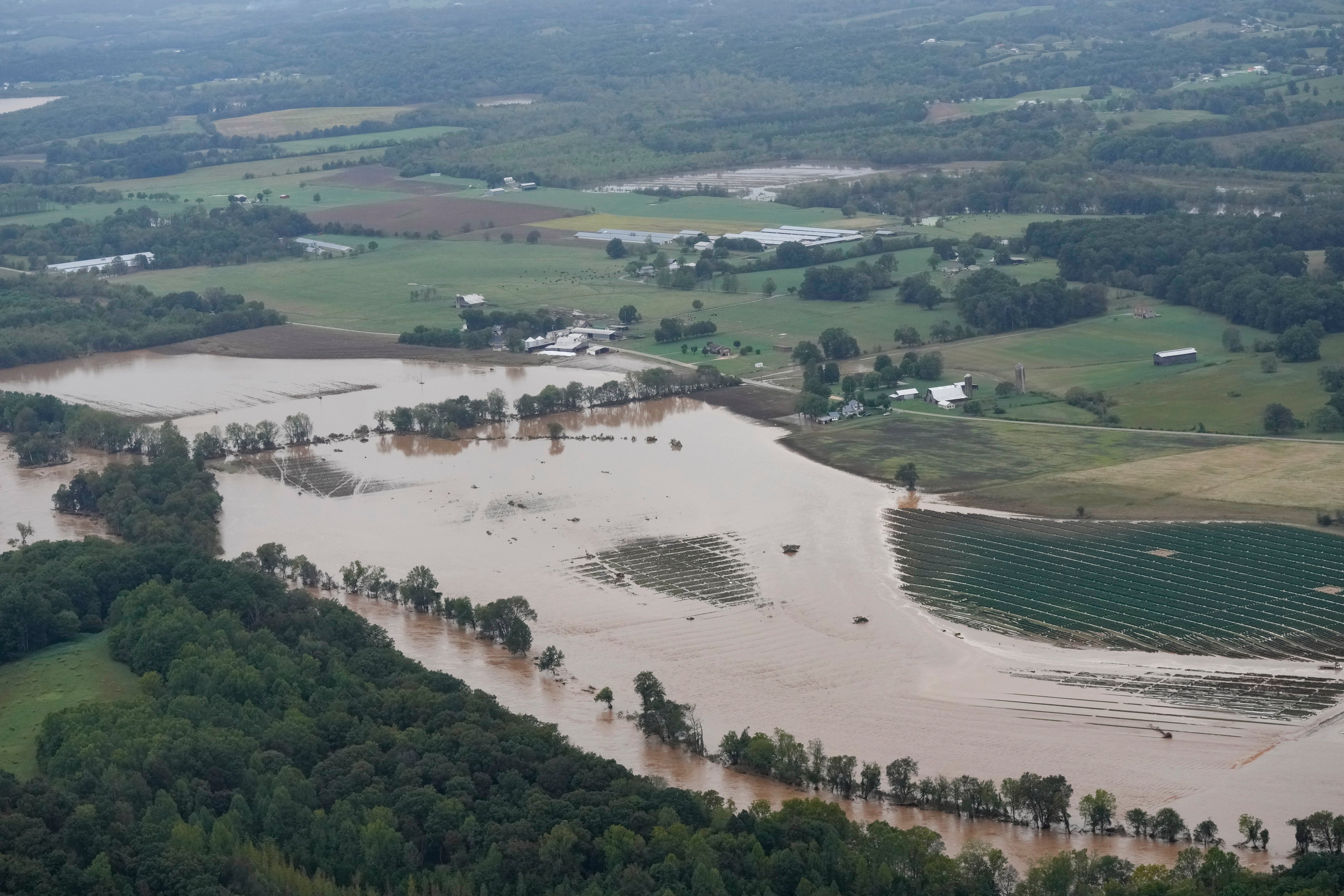Head of FEMA says ‘historic’ destruction caused by Helene is linked to climate crisis
Deanne Criswell said that rising temperatures in the Gulf were causing conditions that caused ‘significant infrastructure damage’ that had affected a multi-state area
The head of the Federal Emergency Management Agency (FEMA) has said that the severe flooding and subsequent devastation caused by Hurricane Helene is linked to the climate emergency.
Deanne Criswell said that rising temperatures in the Gulf were causing conditions that caused “significant infrastructure damage” that had affected a multi-state area.
Though the worst of Helene is now believed to have passed, recovery efforts in multiple communities are underway at pace. At least 62 people have been killed and millions have been left without power.
The storm, now classified a post-tropical cyclone, is expected to hover over the Tennessee Valley on Saturday and into Sunday, according to the National Hurricane Center.
Speaking to CBS’s Face The Nation on Sunday, Crisswell said Helene had been a “true multi-state event” following “historic flooding.”

“This storm took a while to develop, but once it did it intensified very rapidly – and that’s because of the warm waters in the Gulf that’s creating more storms that are reaching this major category level,” she said.
The conditions, Criswell said, were creating greater amounts of storm surge in the coastal areas and increased rainfall as the storms moved north.
“In the past, damage from hurricanes was primarily wind damage, but now we’re seeing so much more water damage and that is a result of the warm waters which is a result of climate change.”
She added: “This is going to be a really complicated recovery in each of the five states” of Florida, Georgia, North Carolina, South Carolina and Tennessee.


Criswell also noted that a 15ft storm surge had hit Florida’s Taylor county, where Helene came ashore as a Category 4 hurricane – with winds of 140 mph – and pointed out that areas of western North Carolina recorded 29 inches of rain when the storm stalled over the region.
“This is historic flooding up in North Carolina,” she said. “I don’t know that anybody could be fully prepared for the amount of flooding and landslides they are having right now.”
North Carolina governor Roy Cooper said on Sunday that authorities were working as fast as possible to restore “normalcy,” but that he expected the state death toll of 11 was likely to increase.
“We know that it’s going to be a matter of time when you have communities that are cut off,” he told reporters at a press conference.

“Everyone is working as hard as we can, first, to save lives, because there’s still water rescues happening to get supplies into people, to make sure we get communications back up, and to get power back on to people, and to repair roads so that we can get from one place to the next. All of those things are important.
Cooper continued: “As soon as we are in a position that process of assessing damages will occur. We’re also going to be getting help to individual families through the individual assistance approved by this disaster declaration that we just got, but we don’t know that yet.
“That’ll be something that we’ll continue to assess, and we will work to get things to get things improved as quickly as possible.”
The governor added that authorities would continue to work “around the clock” on relief efforts.
Join our commenting forum
Join thought-provoking conversations, follow other Independent readers and see their replies
Comments
Bookmark popover
Removed from bookmarks